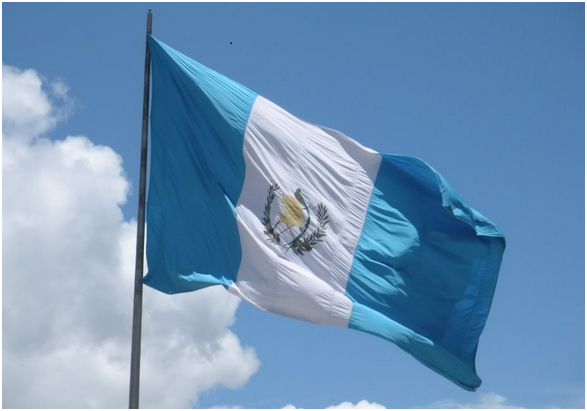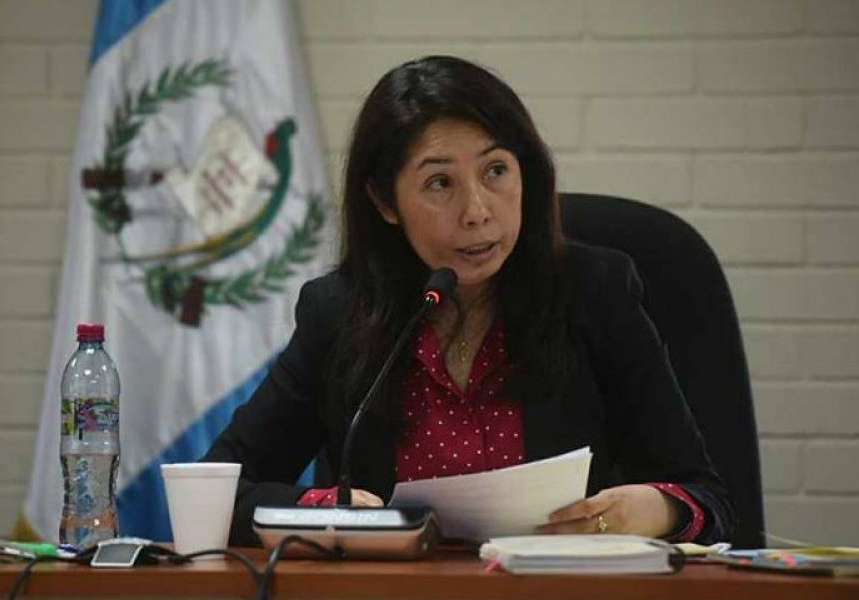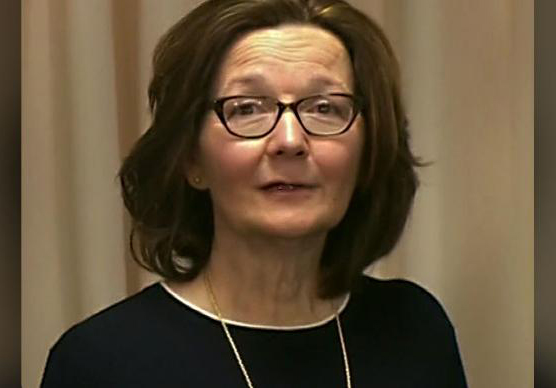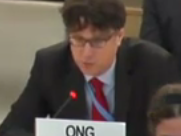
Jun 8, 2018 | News
The ICJ strongly condemns the draft bill of the Congressional Commission on Legislation and Constitutional Affairs to propose reforms to the Law of National Reconciliation (Congressional Decree 145-96) and grant amnesty in cases of gross human rights violations.
“The amnesty included in this draft bill is unconstitutional and flagrantly violates Guatemala’s international obligations. It seeks to place more obstacles in the way of victims of serious human rights violations in their search for justice and truth,” said Ramón Cadena, Director of the Central American Office of the ICJ.
“Justice must be delivered in these important cases because it is the basis for political stability, the rule of law and democracy. Guatemalan authorities should demonstrate that they have an unquestionable commitment to the struggle against impunity. Unfortunately, this draft bill demonstrates the exact opposite,” he added.
This decision flagrantly contravenes Guatemala’s international obligations to prosecute and punish those responsible for gross violations of human rights and guarantee the rights to justice, truth and reparation for victims of these crimes.
International bodies, including the Inter-American Court of Human Rights in numerous judgments, have condemned Guatemala for gross human rights violations; and on repeated occasions have stated that it is prohibited to grant amnesties in cases of gross violations of human rights and international crimes, such as crimes against humanity, genocide and war crimes.
This draft bill could open the doors to allow impunity to continue, at a time when the judicial system is fighting against impunity in historic cases of gross human rights violations and international crimes and in so doing provide guarantees for the victims’ rights to justice.
The ICJ considers that the administration of justice in cases of gross violations of human rights and international crimes by independent judges in cases of “transitional justice” should be supported, not only by the Legislature but also by the Executive Branch, as well as, self-evidently, by the Judicial Branch itself.
The Supreme Court of Justice has the obligation to support independent judges that through their rulings are proving to be impartial, objective and independent and should take the necessary measures to protect judges from any interference or attack that affects the smooth exercise of their duties.
The ICJ recalls that it is a State’s inalienable obligation under international law to investigate gross violations of human rights and international crimes and to prosecute and punish those responsible.

May 29, 2018 | News
The ICJ is deeply concerned about the recent attacks against Judge Erika Aifán that put judicial independence in Guatemala at imminent risk. Judge Aifán has always been upright and honest in her rulings, which she bases on sound principles of the rule of law.
Ramon Cadena, Director of the Central American office of the ICJ stated today: “We must support Judge Aifán because the guarantee of judicial independence is under serious threat.”
“Judge Aifán is an honest and brave Judge presiding over emblematic cases, which could be put in jeopardy if the legal actions against her proceed,” he said.
“It is totally unacceptable that a Court imposes a fine against a professional carrying out their duty. The Judges of the Third Court who imposed this fine should be investigated by the Public Ministry on account of their actions, which constitute an attack on judicial independence,” he added.
The ICJ firmly believes that the independence of judges is essential to uphold the rule of law so that public officials can effectively guarantee access to justice for victims of human rights violations.
The Inter-American Commission of Human Rights (IACHR) has established that “the independence of the judicial power has been recognized as a general principle of law and enshrined in many international treaties”.
For that reason, and with reference to the Guatemalan Constitution and international human rights standards, the ICJ considers that the Guatemalan Supreme Court should take an active role in the defence of judicial independence and in this specific case concerning Judge Aifán.
The ICJ also urges the UN Special Rapporteur on the Independence of Judges and Lawyers to visit the country.
The ICJ also considers that the Guatemalan Prosecutor for Human Rights should submit the case to the IACHR so that that Commission can grant preventive measures to Judge Aifán and investigate this flagrant violation of judicial independence.
The ICJ also requests that the IACHR intervenes in the present situation.
The ICJ considers that the motives for the attacks against Judge Aifán are because she is currently presiding over emblematic cases in the fight against impunity and corruption.
Groups who are interested in maintaining a situation of impunity wish to see her removed from her position.
The ICJ recalls that a judge can only be removed from office for reasons established by law, following a disciplinary process that complies with the basic guarantees of a fair trial; or when a judicial officer has completed the term of their mandate.
Neither of these conditions is met in the case of Judge Aifán. Therefore, the ICJ can only conclude that the attacks against her are attacks on the independence and impartiality of the judiciary as a whole.
It is self-evident that the independence of every judicial body is indispensable for the fulfilment of fair trial standards without which the right of access to justice is undermined.
Furthermore, without judicial independence, people lack confidence in the courts or are fearful and therefore refrain from taking cases to justice.

May 9, 2018 | News
The ICJ said today that Gina Haspel, nominated by Donald Trump to be Director of the CIA, should be subject to a full criminal investigation for her alleged involvement torture and other serious crimes, rather than elevated to serve as the country’s highest intelligence office.
The ICJ statement came as the United States Senate Intelligence was poised to beginning hearings on her confirmation to the position.
“If Gina Haspel becomes CIA Director, the United States will be sending a signal to the world that it has dropped the pretence of caring about even the most serious human rights violations,” said Sam Zarifi, ICJ Secretary General.
“It will show that torturing and disappearing people by US officials will not only be met with impunity, but will be no bar to career advancement.”
Following the terror attacks against the United States of 11 September 2001 until 2007, the CIA held at least 119 terror suspects or persons it suspected to have intelligence value in places of secret detention outside of US territory.
The black sites were situated in several countries, including Afghanistan, Lithuania, Poland Romania, and Thailand.
The detainees, who had no contact with the outside world, were placed beyond the protection of the law and subjected to torture and cruel, inhuman and degrading treatment.
The torture included near drowning (“waterboarding”), prolonged sleep deprivation, placement in painful stress positions for extended periods, forced rectal feedings, and slamming against walls.
Gina Hapel oversaw at least one “black site” detention centre in Thailand in 2002, while detainee Abd al-Rahim al Nashiri was being tortured there.
She is credibly alleged to have played a significant role in destroying video evidence of interrogations that were carried out under torture.
“The European Court of Human Rights has already condemned Poland for violating the rights of Abd al-Rahim al Nashiri, after he was transferred to secret CIA detention facility in Poland, yet nobody directly responsible CIA has ever been held accountable for these serious crimes,” said Sam Zarifi.
Contact
Ian Seiderman, ICJ Legal and Policy Director, t +41 22 979 3837 ; e: ian.seiderman(a)icj.org

Mar 22, 2018 | Advocacy, Non-legal submissions
The ICJ today highlighted at the UN the need for further action to address impunity in Sri Lanka and in Colombia.
The statement, delivered in a general debate at the UN Human Rights Council, responded to UN reports on Sri Lanka and Colombia, and read as follows:
Sri Lanka has not made sufficient progress on its commitments and obligations as reflected in Council resolution 30/1. Among the mechanisms contemplated, only the Office on Missing Persons (OMP) is operational. The process for establishing the other mechanisms, and the extent to which their composition will be based on the broad national public consultations carried out in 2016, remains unclear. The ICJ reiterates that, in line with operative paragraph 6 of resolution 30/1, the accountability mechanism cannot be seen as credible without involvement of international judges, prosecutors and investigators.
Furthermore, despite promises to repeal the Prevention of Terrorism Act (PTA), arrests still take place. As the High Commissioner recommended, the PTA should be promptly repealed without waiting for replacement legislation. Any proposed counterterrorism law must comply with international human rights standards.
In Colombia, the ICJ shares OHCHR’s deep concern about the exclusion of non-military State agents and private individuals from the scope of mandatory application of the Integrated System of Justice, Truth, Reparations and Guarantees of Non-repetition (per paragraph 90 of the Report). Furthermore, four months of unjustified delay by the Government in accrediting the new representative of the OHCHR Office, which ended only yesterday, undermined the ability of the Office to provide adequate technical assistance to guarantee victims’ rights in the Integrated System, as provided for by the Peace Agreement.”
[Paragraph 6 of Human Rights Council resolution 30/1 provides that the Council, “Welcomes the recognition by the Government of Sri Lanka that accountability is essential to uphold the rule of law and to build confidence in the people of all communities of Sri Lanka in the justice system, notes with appreciation the proposal of the Government of Sri Lanka to establish a judicial mechanism with a special counsel to investigate allegations of violations and abuses of human rights and violations of international humanitarian law, as applicable; affirms that a credible justice process should include independent judicial and prosecutorial institutions led by individuals known for their integrity and impartiality; and also affirms in this regard the importance of participation in a Sri Lankan judicial mechanism, including the special counsel’s office, of Commonwealth and other foreign judges, defence lawyers and authorized prosecutors and investigators;”]

Mar 22, 2018 | News
The ICJ has been awarded a grant from the Royal Norwegian Embassy in Mexico to continue its work in the area of independence of the judiciary in Guatemala.
This initiative titled “Strengthening the rule of law in Guatemala, Phase II” aims to strengthen domestic compliance with, and implementation of, international standards providing for judicial independence through the training of judges, raising awareness on this topic, as well as providing support to judges at risk.
The ICJ will be working together with the Mayan Association of Lawyers and Notaires of Guatemala as a partner in this action, through a sub grant of 1,622,801 NOK.
Guatemala-Grant Agreement with Norway-2018-ENG (full grant agreement, in PDF)









